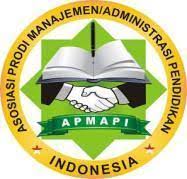Pengembangan Metode Pembelajaran Yang Efektif di Taman Pendidikan Al-Qur'an (Studi Kasus di Taman Ilmu Zainun Nafi' Singosari Malang)
Abstract
Full Text:
PDFReferences
Aan Komariah dan Cepi Triatna. (2008). Visionary Leadership: Menuju Sekolah Efektif. Jakarta: Bumi Aksara. Agung Wicaksono. Efektifitas Pembelajaran, n.d. http://Agungprudent.wordpress.com (diakses tanggal 5 september 2017). Aliwar. (2016). Penguatan Model Pembelajaran Baca Tulis Quran Dan Manajemen Pengelolaan Organisasi (TPQ). Fakultas Tarbiyah dan Ilmu Keguruan IAIN Kendari. Arif Yusodipuro. (2013). Siswa Senang Guru Gemilang. Setrategi Mengajar yang Menyenangkan dan Mendidik dengan Cerdik. Jakarta: Kompas Gramedia. B. Suparno dan Bahhtiar Hariadi. (2020). Pengembangan Pembelajaran Membaca Al-Qur'an Tingkat Dasar Berdasarkan Ilmu Tajwid Dengan Metode Joyfull Learning. Lintang Songo: Jurnal Pendidikan, Vol 3. No 1, Februari 2020. D. Fontana. (1981). Psychology for Teacher. London: A.Wheaton. Data Pokok Lembaga Pendidikan Al-Qur’an. 2021, n.d. emispendis.kemenaq.go.id. J. M. Asmani. (2016). Tips Efektif Cooperatif Learning. Yogyakarta: Diva Press. M. Abdul. Strategi Pembelajaran. Bandung: PT Remaja Rosdakarya, n.d. Matthew B. Miles & A. Michael Huberman. (2009). Analisis Data Kualitatif. Jakarta: UI-Press. Modul Sertifikasi Guru Al-Qur’an Metode Ummi. Surabaya: Gayungsari Barat, 2014. M. Fahim Tharaba. (2019). Membangun Budaya Mutu Dalam Pengembangan Pendidikan Islam Di Indonesia. Malang: UIN Maulana Malik Ibrahim. Nana Sudjana. (2004). Dasar-Dasar Proses Belajar Mengajar. Bandung: Sinar Baru. Oemar Hamalik. (2002). Kurikulum Dan Pembelajaran. Jakarta: PT. Bumi Aksara. Paulina Panen, dkk. (2003). Belajar Dan Pembelajaran 1. Pusat Penerbitan Universitas Terbuka. Peraturan Pemerintah Republik Indonesia PP No. 5, Pasal 24 Ayat 2, 2007. R. M. Gagne, L. J. Briggs, & W. W Wager. Priciples of Instructional Design (4th Ed). 1992: Orlando: Holt, Rinehart, and Winston, n.d. Syaiful Bahri Djamarah. (2013). Strategi Belajar Mengajar. Jakarta: Rineka Cipta. U. Umihatul dan A. Wafi. (2017). Metode-Metode Praktis Dan Efektif Dalam Mengajar Al-Qur’an Bagi Anak Usia Dini. W. Bennis dan Nanus B. (1997). Leaders, the Strategies for Taking Charge. New York: Harper & Row, Barenson.
DOI: https://doi.org/10.18860/rosikhun.v1i1.13901
Refbacks
- There are currently no refbacks.
Copyright (c) 2021 Eny Mujayanah

This work is licensed under a Creative Commons Attribution-ShareAlike 4.0 International License.
Jl. Raya Ir. Soekarno No.34 Dadaprejo, Pendem, Junrejo, Kota Batu, Jawa Timur













